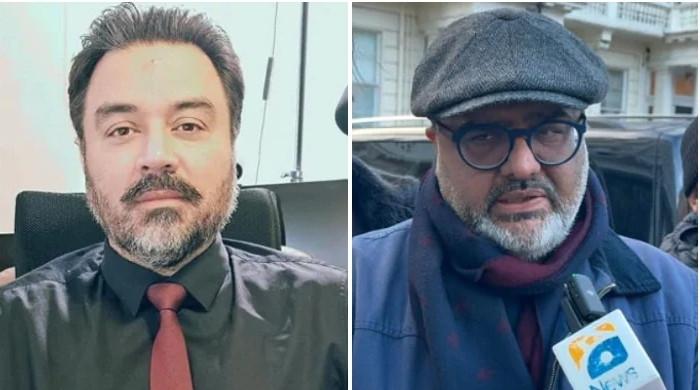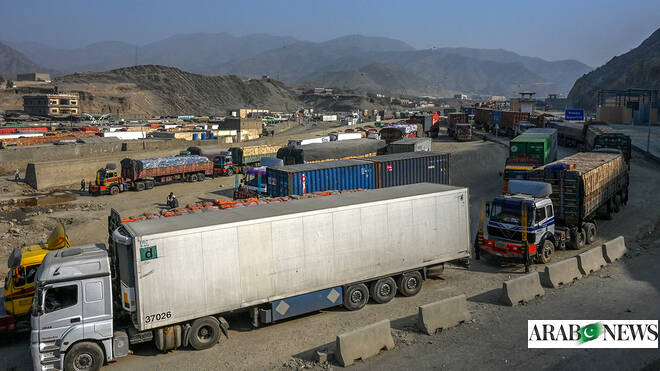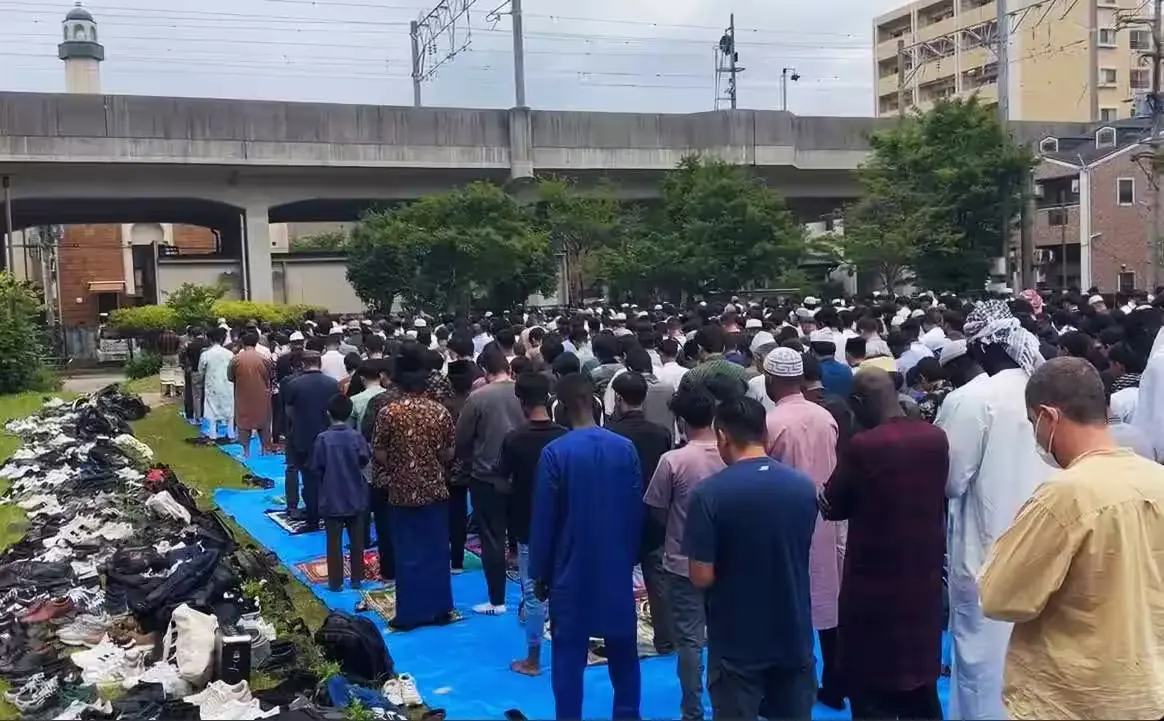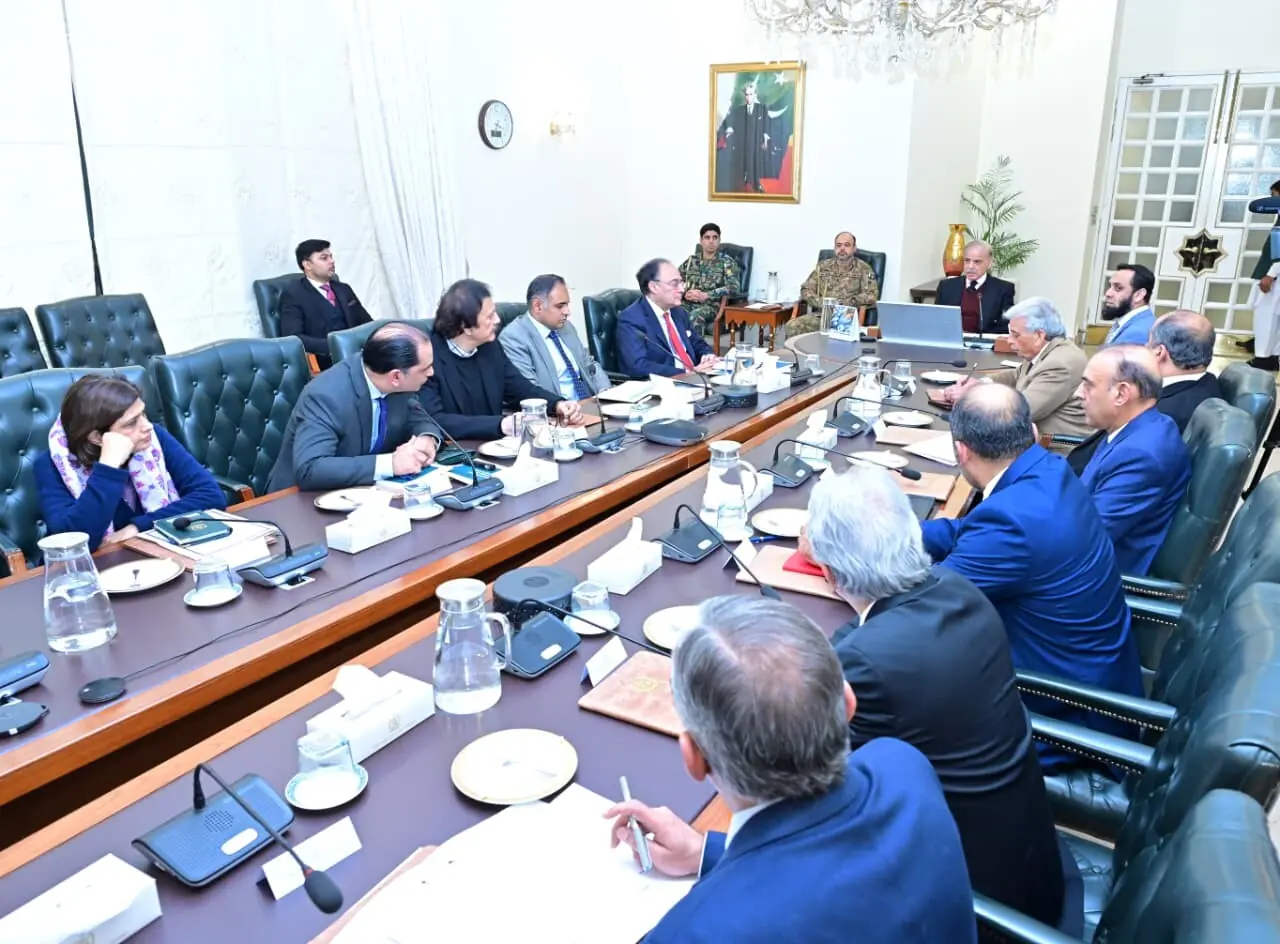Prime Minister Shehbaz Sharif directed authorities to strengthen Pakistan’s exports and reduce the trade deficit, emphasizing export-led growth as a government priority. Officials were instructed to formulate strategies in coordination with…
Category: 1. Pakistan
-
CDF Field Marshal Munir emphasises army’s zero-tolerance policy towards threats to national security – Dawn
- CDF Field Marshal Munir emphasises army’s zero-tolerance policy towards threats to national security Dawn
- Armed forces fully prepared to defend borders: Field Marshal The Nation (Pakistan )
- Army remains steadfast in safeguarding sovereignty,…
Continue Reading
-
Armed Forces remain steadfast in safeguarding country’s sovereignty: Field Marshal – RADIO PAKISTAN
- Armed Forces remain steadfast in safeguarding country’s sovereignty: Field Marshal RADIO PAKISTAN
- CDF Field Marshal Munir emphasises army’s zero-tolerance policy towards threats to national security Dawn
- Armed forces fully prepared to defend…
Continue Reading
-
Major energy projects providing new direction to Pakistan's industrial growth – RADIO PAKISTAN
- Major energy projects providing new direction to Pakistan’s industrial growth RADIO PAKISTAN
- 220kV SEZ grid station energised in Sheikhupura Dawn
- National Grid Company energizes 220 KV grid station in Sheikhupura 24 News HD
- NGC energizes 220kV…
Continue Reading
-
CAMEA Bulletin – News from Afghanistan, Middle East & Africa (January 8, 2026)
Afghanistan
1. Pakistan warns that Afghanistan is becoming ‘hub for terrorists’ and poses regional threat https://apnews.com/article/pakistan-military-afghanistan-extremism-hub-syria-5c774cc1203861397419afc666918d0c
2. At least 17… Continue Reading
-
Rizwan calls for initiating Pak-US high-level economic dialogue – RADIO PAKISTAN
- Rizwan calls for initiating Pak-US high-level economic dialogue RADIO PAKISTAN
- Sanctions, Strategy, and Silence: The U.S.–Pakistan Equation vocal.media
- Pakistan’s Diplomatic Gamble: A Rebound With Regional Ripples Menafn.com
- Pak, US resolve to…
Continue Reading
-
'NPA-Beijing Police College cooperation to be strengthened' – RADIO PAKISTAN
- ‘NPA-Beijing Police College cooperation to be strengthened’ RADIO PAKISTAN
- China calls for joint counter-terrorism efforts with Pakistan Reuters
- Special protection unit being set up in Islamabad for security of Chinese nationals, says Naqvi Dawn
Continue Reading
-

London police believe attacks on Adil Raja, Shahzad Akbar were ‘coordinated’
A collage showing Major (retired) Adil Raja (left) and former adviser to PM Shahzad Akbar. — Geo News/Murtaza Ali Shah LONDON: Officers from Counter Terrorism Policing (CTP) London are jointly investigating…
Continue Reading
-

Pakistan-Afghan border closure costs exporters $177 million a month, business groups warn
ISLAMABAD: Pakistani exporters are losing an estimated Rs50 billion ($177 million) each month due to the continued closure of key border crossings with Afghanistan, business leaders said this week, warning that prolonged disruption could…
Continue Reading
-

Muslim Population Growth Tests Local Cooperation
このページを
日本語
で読むAccording to the Higashi Ward Office in Fukuoka City, the religious corporation that operates the Fukuoka Mosque applied in June 2025 for permission to occupy 100 square…
Continue Reading
